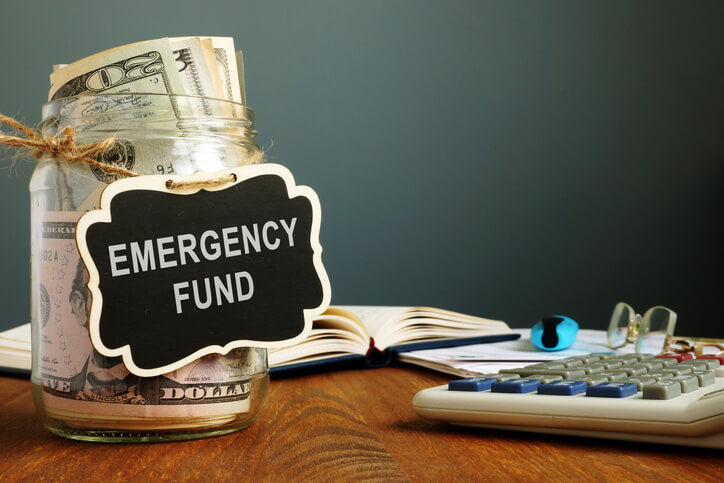Whether it’s a job loss or a major home repair, unexpected situations can happen at any time. However, many people aren’t prepared for them. According to the Consumer Financial Protection Bureau, nearly a quarter of consumers have no savings for emergencies. While these events can’t always be prevented, having an emergency fund can help alleviate the financial burden when they arise.
It’s important to learn how much money you need in your emergency fund and why essential healthcare, like dental care, should be part of the conversation when determining how much to save in your emergency fund.
How Much Do I Need in My Emergency Fund?
The general rule is to keep at least three to six months of living expenses in your emergency fund.
Of course, the size of your emergency fund depends on various factors, including your lifestyle, income, and dependents. To determine how much money you should have, examine your monthly expenses, such as:
- Housing costs — Factor in expenses like monthly rent or mortgage payments, property taxes, HOA fees, and renters or homeowners insurance
- Food — These costs include groceries and other food-related needs
- Utilities — Such as water, gas, electric, internet, phone, cable, and garbage/recycling
- Transportation — These expenses include gas, car payments, public transportation, auto insurance, and other transportation necessities
- Debt — These costs include credit cards, students loans, and other personal loans you may have
- Other expenses — Factor in costs such as child care, taxes, household supplies, pet expenses, and clothing
- Healthcare costs —Check the amount of money you pay for medical, vision, life, disability, dental insurance, and any others
In this article, we’re going to focus on dental care. It’s important to include dental care in your emergency fund because of its impact on overall health and how financially debilitating a dental emergency can be.
See how much you can save with a dental savings plan today.
- Save an average of 50%* at the dentist
- Plans start at $7/mo billed annually
Why Dental Work Should Be Included in Your Emergency Fund
The American Dental Association (ADA) reports that cost and low-perceived need are the top reasons for infrequent dental visits among adults of all ages and income levels.
However, you should be saving for dental care because oral health can affect overall health. Research has shown that oral health problems — e.g., gum disease — can be linked to other conditions and diseases, such as respiratory, cardiovascular, diabetes, adverse pregnancy outcomes, and breast cancer. Luckily, if you schedule regular dental checkups, your dentist can help keep your mouth healthy and look for signs that may lead to other health issues, helping you save money in the long run.
It’s also important not to delay dental care due to cost because it can result in a painful, expensive dental emergency. Additionally, many emergency rooms don’t fix dental problems since they generally do not have a dentist on duty. They may provide care for infections or medication for pain management. However, you would likely still need to see a dentist to address your problem, ultimately increasing your dental expenses.
The ADA estimates that 79% of dental emergencies could have been addressed with a visit to the dentist. To reduce the chances of painful, costly visits to the emergency room, schedule routine dental checkups at least twice a year. Your dentist can help maintain your oral health and treat dental issues early before they become more serious, expensive problems.
How Dental Savings Plans Can Play a Role
Budgeting for an emergency fund is an excellent way to prepare for unexpected life events, such as losing your job. While there are many expenses you need to consider, you should save money in your emergency fund for dental care. It’ll help maintain your oral and overall health and lower your risk of needing expensive restorative dental work.
You should also make sure you have a way to save money on dental care so your emergency fund can go further. Dental savings plan — an affordable alternative to dental insurance — can help. You pay one low annual fee and then get access to savings of 10-60% on virtually all dental procedures, including preventive care, restorative treatments and emergency procedures. Additionally, dental savings plans provide quick activation, no annual limits, and no restrictions based on current health conditions.
Preparing for a dental emergency now can help you keep more money in your emergency fund in the long run. Call us at 1-833-735-0399 to learn more about dental savings plans and how they can fit into your emergency planning.
